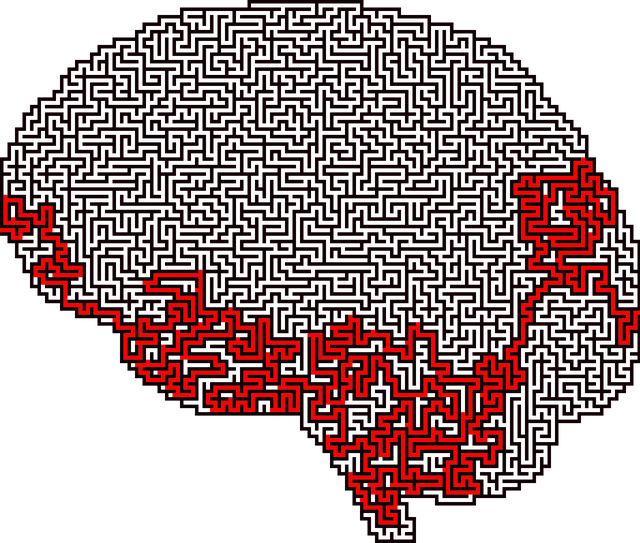Greenwood Village Bipolar Disorder Therapy employs Recovery-Focused Management (RFM) strategies, including Mindfulness Meditation and burnout prevention, to empower patients with bipolar disorder. Their structured programs enhance emotional regulation, develop coping skills, and build support networks through risk management planning, empathy building, and crisis response workshops. Regular progress monitoring enables therapists to adapt the program to individual needs, fostering resilience, improving mental health outcomes, and increasing life satisfaction.
In the realm of mental health support, particularly for managing bipolar disorder, Greenwood Village has pioneered innovative approaches through Resilience-Focused Therapy (RFT) and associated exercises. This article delves into the significance of RFM in building resilience, exploring its implementation within a specialized therapy program in Greenwood Village. We’ll navigate strategies, progress tracking, and adjustments, offering insights tailored to enhancing the effectiveness of bipolar disorder treatment in this vibrant community.
- Understanding RFM and Its Role in Resilience Building
- Implementing Exercises for a Greenwood Village Bipolar Disorder Therapy Program
- Tracking Progress and Adjusting Strategies for Optimal Results
Understanding RFM and Its Role in Resilience Building

Resilience is a vital component of mental well-being, enabling individuals to navigate life’s challenges and adversity with strength and adaptability. Recognizing this need, mental health professionals have turned their focus to RFM (Recovery-Focused Management), an evidence-based approach that plays a pivotal role in fostering resilience, especially for those grappling with conditions like bipolar disorder. The concept of RFM involves a range of strategies aimed at enhancing individuals’ ability to recover and thrive despite setbacks.
In the context of Greenwood Village Bipolar Disorder Therapy, RFM techniques are instrumental in helping patients manage symptoms, improve coping mechanisms, and build a strong support system. This approach encourages active participation in one’s recovery journey, promoting self-efficacy and a sense of control over one’s life. By integrating practices like Mindfulness Meditation and Burnout Prevention Strategies for Healthcare Providers into therapy sessions, individuals can develop effective tools for Anxiety Relief, enhancing their overall resilience and quality of life.
Implementing Exercises for a Greenwood Village Bipolar Disorder Therapy Program

In the context of Greenwood Village Bipolar Disorder Therapy programs, implementing structured exercises is a powerful approach to enhancing resilience and coping abilities among participants. These exercises are meticulously designed to address the unique challenges associated with bipolar disorder, fostering a supportive environment that encourages emotional regulation and adaptive behaviors. By integrating activities focused on risk management planning for mental health professionals, empathy building strategies, and coping skills development, therapists can facilitate meaningful progress in individual therapy sessions.
Through these therapeutic interventions, clients learn practical tools to navigate mood swings, improve communication, and build strong support networks. The process involves teaching them to recognize triggers, develop personalized coping mechanisms, and enhance their overall ability to manage stress. By combining evidence-based practices with a compassionate approach, Greenwood Village Bipolar Disorder Therapy offers participants the chance to develop lifelong resilience, leading to improved mental health outcomes and enhanced quality of life.
Tracking Progress and Adjusting Strategies for Optimal Results

Monitoring progress is an integral part of any successful resilience-building program. When implementing exercises tailored to address bipolar disorder and enhance coping mechanisms, regular assessment allows for a deeper understanding of participants’ individual journeys. By tracking improvements in their ability to manage stress, respond to crises, and resolve conflicts, therapists and facilitators can identify what strategies are resonating and which may require refinement. This data-driven approach ensures that the program adapts to the evolving needs of the group, fostering an environment where everyone can thrive.
At the Greenwood Village Bipolar Disorder Therapy center, we utilize this method to optimize our Stress Management Workshops Organization sessions. By incorporating real-time feedback and adjustments, we aim to provide tailored Crisis Intervention Guidance, ensuring every participant receives the support they need to lead fulfilling lives. This dynamic process encourages ongoing growth and reinforces the effectiveness of Conflict Resolution Techniques taught during our workshops.
The implementation of RFM (Resilience, Flexibility, and Mastery) exercises within the context of a Greenwood Village Bipolar Disorder Therapy Program has shown significant potential in enhancing participants’ resilience. By understanding individual resilience levels and tailoring strategies accordingly, therapists can effectively track progress and make adjustments to optimize therapeutic outcomes. This structured approach ensures that each participant receives personalized support, fostering a more profound and lasting impact on their mental health journey.














